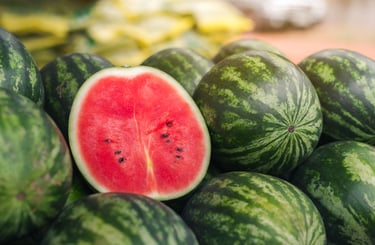eStoreRx™
Online Supplement Dispensary
eStoreRx™ is an easy direct-to-patient ordering & fulfilment program for lifelong wellness.
For over 40 years, Biotics Research Corporation has revolutionized the nutritional supplement industry by utilizing “The Best of Science and Nature”. Combining nature’s principles with scientific ingenuity, our products magnify the nutritional
eStoreRx™ is an easy direct-to-patient ordering & fulfilment program for lifelong wellness.
Biotics Research is proud to expand our commitment to education with the Wellness Unfiltered Pro Podcast. Each episode delves into key health topics and the clinical applications of our premier products. Through candid, insightful conversations, our team offers practical guidance to keep you informed and empowered as a healthcare professional.
February 26 2026
A study published recently in the Journal of Cachexia, Sarcopenia and Muscle raises concerns about a possible side-effect of long-term statin drug use...
 An interesting study has found that the consumption of watermelon may positively impact hepatic gene expression and upregulate lipid metabolism in obese mice.
An interesting study has found that the consumption of watermelon may positively impact hepatic gene expression and upregulate lipid metabolism in obese mice.
The current Western diet, often characterized by intake of high levels of saturated fats, cholesterol, and refined carbohydrate, has been shown to contribute to the development of non-alcoholic fatty liver disease (NAFLD) and non-alcoholic steatohepatitis (NASH), both associated with excessive fat accumulation in the liver.
Previous evidence from animal studies suggests that vitamins and phytonutrient compounds from fruit may support the regulation of several key proteins (transcription factors) related to lipid metabolism, hepatic fat deposition, apoptosis of hepatocytes, and inflammation, thereby protecting against NAFLD, NASH, and some of the negative metabolic consequences of the Western diet.
Earlier studies specific to watermelon, consumed alongside a high-fat diet, in male mice, have reported improved fat metabolism, blood glucose regulation, and lowered inflammation associated with the consumption of this fruit. While there are minimal human studies, results assessing the impact of watermelon intake on factors associated with overweight and obesity are also promising. This may be attributable to the variety of nutrients found in watermelon, including dietary fiber, vitamin C, vitamin E, β-carotene, lycopene, and flavonoids.
The aim of this study was to assess the impact of different watermelon compounds on hepatic gene expression and lipid metabolism. Over a 10-week period, mice were fed either a low-fat diet, high-fat diet (control diet), or a high-fat diet plus either the flesh, rind or skin of the watermelon. RNA sequencing was then performed.
The results demonstrated mice in all three watermelon groups exhibited positively altered hepatic gene expression with upregulation of lipid metabolism pathways alongside downregulated inflammatory and vasoconstriction pathways compared to mice in the high-fat diet control group. The researchers also report that while each part of the watermelon positively impacted hepatic transcription, they delivered differing results and potential mechanisms of action, perhaps as a result of the unique phytochemical composition of each part of the watermelon.
The researchers concluded that mice fed components of watermelon reflective of typical levels of human consumption exhibited positive hepatic gene expression linked to improved lipid metabolism. In addition, it was noted that the study utilized powdered watermelon extracts rather than fresh produce, which may offer the potential for watermelon byproducts to be used as cost-effective components of nutraceuticals in the future. They also postulated that the processing used to create watermelon extracts for the study may have reduced their nutritional value and that the fresh fruit may offer additional or more pronounced benefits.
Submit this form and you'll receive our latest news and updates.
An intriguing study found different effects on pregnant mice’s liver metabolism as a result of vitamin D deficiency (VDD...
Learn more
*These statements have not been evaluated by the Food and Drug Administration. This product has not intended to diagnose, treat, cure, or prevent any disease.
© 2025 Biotics Research Corporation - All Rights Reserved
Submit your comment